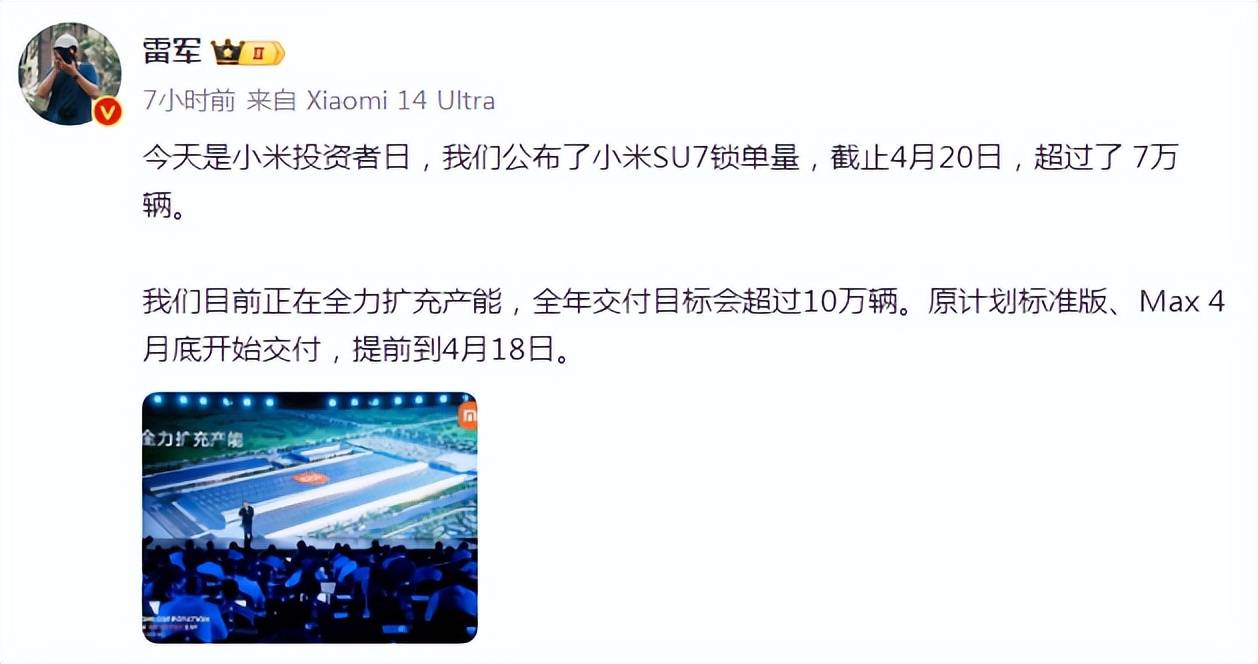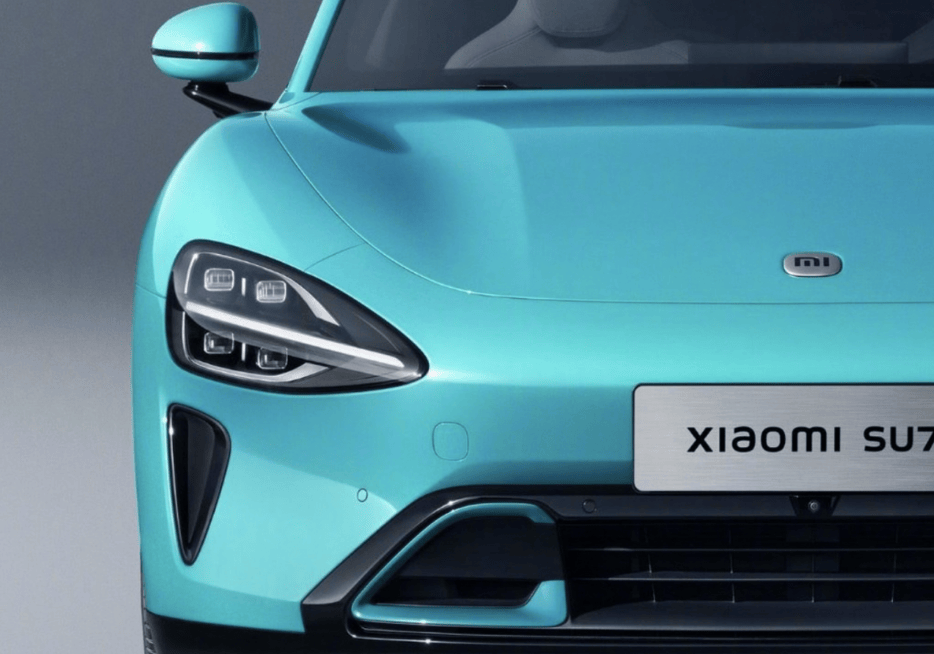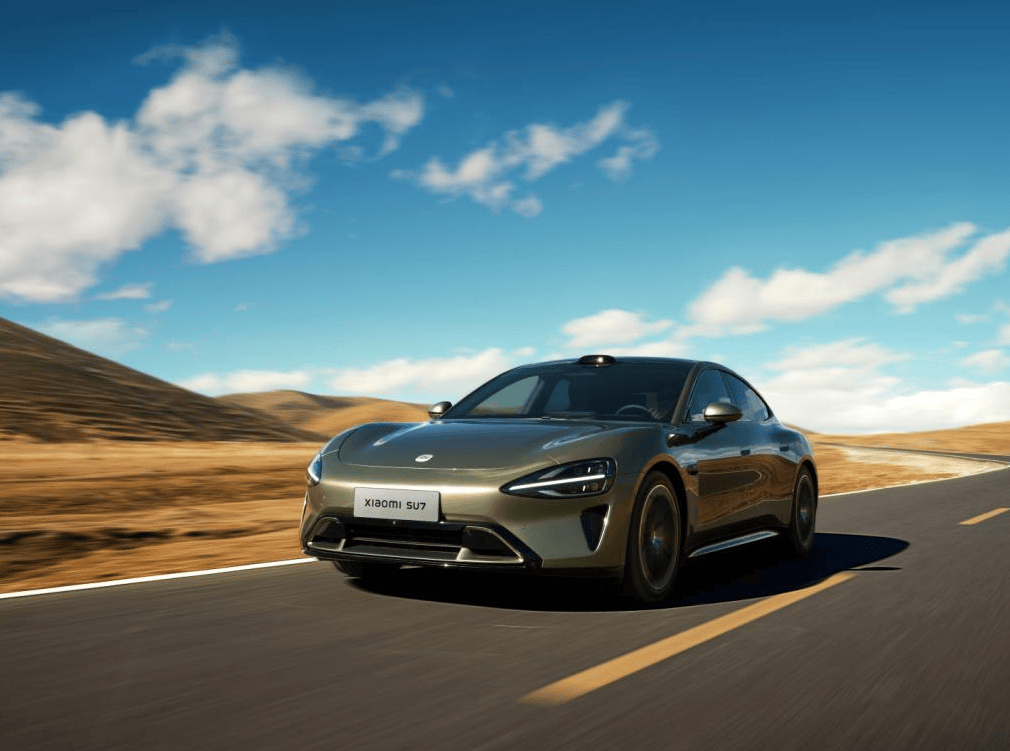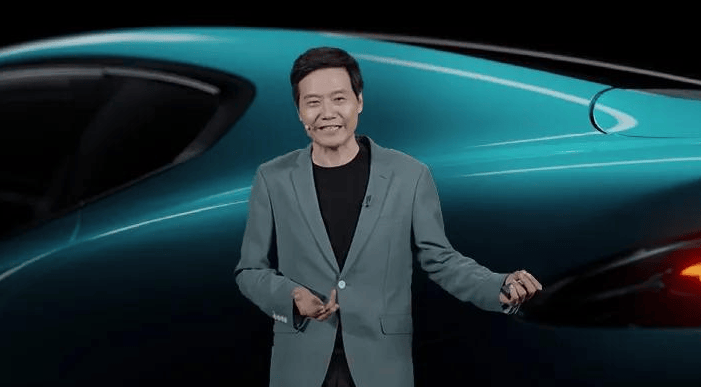The Success Story of Xiaomi’s Electric Car SU7
In the past month, it’s hard to argue that the most talked-about product in the automotive industry isn’t the Xiaomi SU7. Since its official launch on March 28th, the Xiaomi SU7 has been on the market for less than a month and has already accumulated an astounding 70,000 pre-orders, according to data recently released by Xiaomi’s founder, Lei Jun.

Despite initial controversies surrounding its resemblance to a luxury sports car, concerns about deposit refunds, complicated cancellation processes, concealed cancellation buttons, and the default non-refundable status of pre-orders, the success of the Xiaomi SU7 in the market cannot be overlooked. Selling over 70,000 locked orders in less than a month is remarkable within the automotive industry, considering that many car brands struggle to reach this figure in a whole month or even a year. It’s clear that both the marketing strategy for Xiaomi’s automotive sector and the product performance of the SU7 have been highly successful.
Sales advisors from Xiaomi’s retail stores have revealed that test drives for the Xiaomi SU7 now require a 3-5 day waiting period, with approximately 200,000 people in Shanghai alone having made reservations for a test drive. Many are busy every day, and it may take about 20 weeks for the vehicles to be delivered once an order is placed.

Lei Jun has stated that the company is currently expanding its production capacity and aims to deliver 100,000 units by the end of the year. Deliveries of the standard and Max versions, originally scheduled for the end of April, have already begun on April 18th. Many prospective owners who have already placed orders through the Xiaomi Car app have witnessed earlier than expected delivery times. Lei Jun has also hinted at detailed plans for production capacity and future deliveries at the upcoming Beijing Auto Show.
In a rather confident manner, Lei Jun even suggested that if users are in a hurry to purchase a car, domestic new energy vehicles such as the Zhijie S7, Nio ET5, and Xpeng P7 series are worth considering. This indicates a high level of confidence in the sales potential of the Xiaomi SU7.

Underneath the façade of camaraderie among major automotive companies, there seems to be a subtle battle as well. According to reports, Huawei’s Zhijie S7 is attempting to intercept orders for the Xiaomi SU7 by offering a discount of 5000 yuan on the non-refundable 5000 yuan deposit for the Xiaomi SU7, upon payment of the balance for purchasing a Zhijie S7. Similarly, Nio’s offline stores are offering corresponding subsidies, promising a 5000 yuan discount on orders, with the added flexibility of refunding the 5000 yuan “large order” deposit at any time even after the order is placed. Staff at a Huawei authorized offline experience store have also assured users that purchasing a Huawei vehicle will entitle them to a 5000 yuan “deposit” subsidy for the Xiaomi SU7 at all HarmonyOS Smart Driving signing stores nationwide.

Reflecting on the current sales situation of the Xiaomi SU7, Lei Jun expressed both joy and the pain of success, indicating the agony of coping with production capacity constraints. When asked whether Xiaomi’s foray into the automotive industry could be considered successful, Lei Jun remained modest, stating that it’s too early to determine the overall success and that it’s just the first phase. Given the lengthy car manufacturing cycle, Xiaomi, as a company with a long-term vision, aims to prioritize the quality of its cars and customer service.
Lei Jun’s modesty holds true considering that for Xiaomi, substantial sales are only the first step. The capacity issue is the second step, and more importantly, the post-delivery after-sales service requires substantial time for further validation.